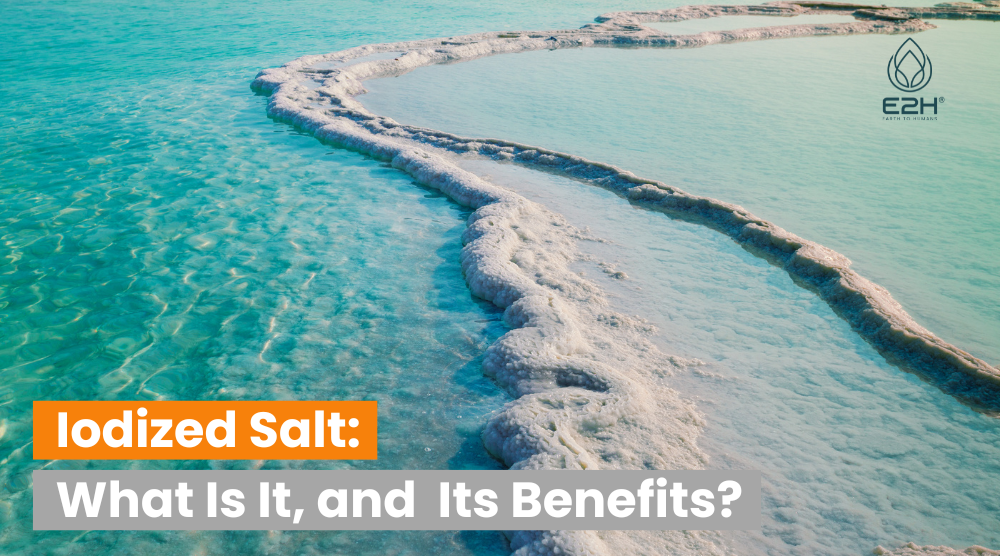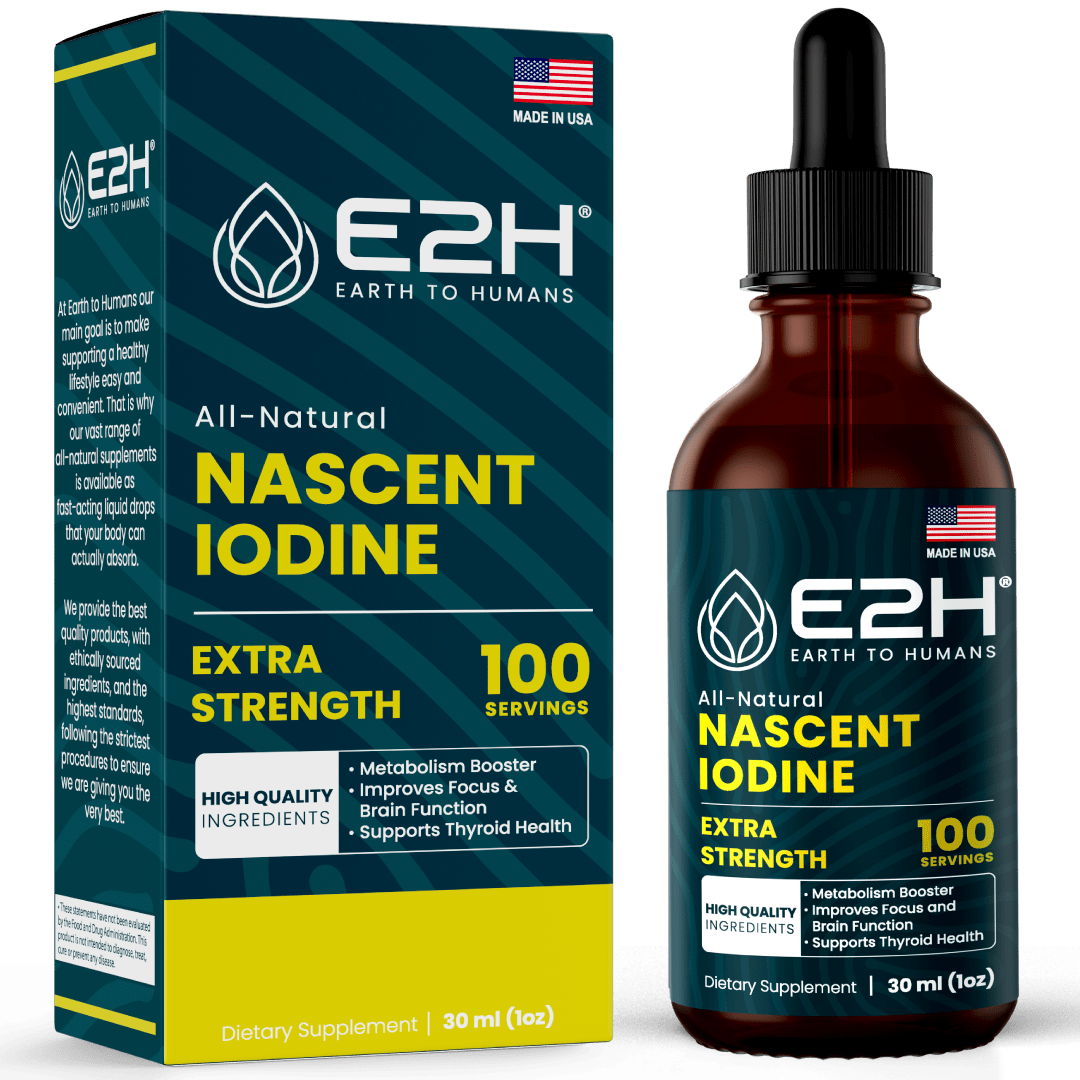Salt is an essential part of the human diet and has many benefits. Iodized salt contains potassium iodide, which is essential for the body. Iodine is vital for pregnant women because it helps prevent congenital disabilities of the brain and nervous system.
A deficiency of iodine is a significant public health problem worldwide. Iodine deficiency can cause many problems, including goiter, mental retardation, and stunted growth. Iodized table salt is the best way to get iodine in your diet and prevent these problems. This article will explore the benefits of iodized salt intake.
What is iodized salt?
Iodized salt is not just any old table salt. It has been enriched with iodine, an essential mineral for human health. Iodine is necessary to produce thyroid hormones, which regulate metabolism, growth, and development. Without enough iodine, people can develop goiters or enlargements of the thyroid gland. Iodized salt helps to prevent these health problems by providing the body with the iodine it needs.
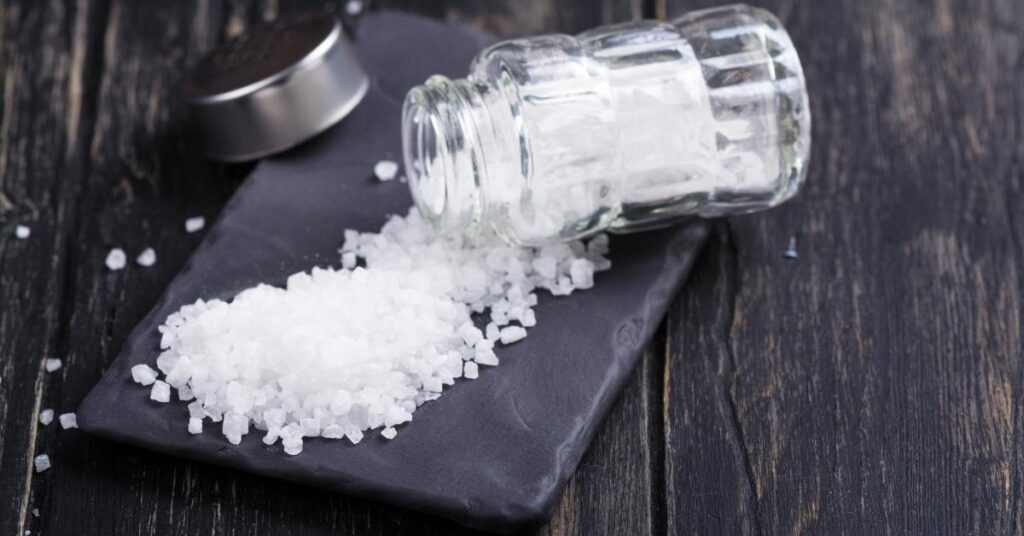
Who is at risk of iodine deficiency?
Iodine deficiency is common worldwide. 1.5 billion individuals are at risk of developing iodine deficiency. [1] Iodine deficiency is most common in areas where the diet does not include much iodine-rich seafood, for example, in Asia and Africa. About of ⅓ population of the Middle East is at risk of ID (Iodine deficiency). [2]
It is also a problem in the following group of people:
- Pregnant women
- Nursing mothers
- Vegetarians and vegans [3]
What are the symptoms of iodine deficiency disorders?
Neck Swelling: Iodine deficiency can lead to goiter, a condition in which the thyroid gland enlarges. The goiter may be painful and cause difficulty swallowing or breathing. [4]
Hypothyroidism: Iodine deficiency can also cause hypothyroidism, a condition in which the body produces too little thyroid hormone. [5] Symptoms of hypothyroidism include:
- Fatigue
- Weight gain
- Dry skin
- Hair loss
- Constipation
- Colder body temperature
- Generalized edema
Cretinism: Iodine deficiency can also lead to cretinism, a condition characterized by mental retardation and physical deformities in children. [6]
How can iodized salt prevent iodine deficiency?
Beginning in 1917, Dr. David Marine started his trials showing that iodine supplementation might reduce the occurrence of goiters. Iodine fortification to combat iodine deficiency became widespread in several nations in the 1920s. Iodized salt was so good in eradicating the problem that it was eventually used worldwide. 70% of kids in certain parts of the United States had goiters before the 1920s.
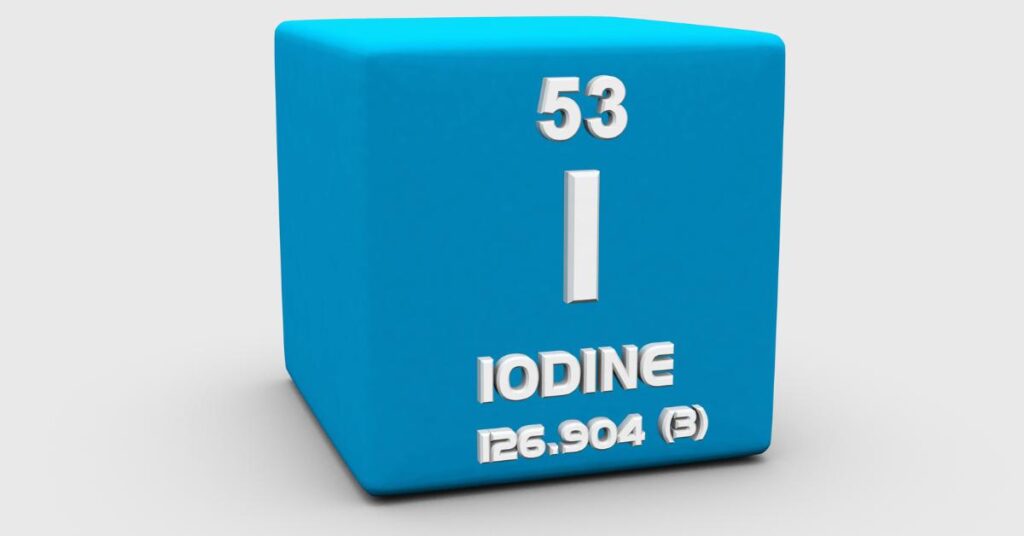
In contrast, 90% of Americans regularly use iodized salt, and the country as a whole is deemed iodine-sufficient. [7] Iodized salt is an excellent source of iodine if you are not getting enough from your diet. It is important to use iodized salt because it has a much higher concentration of iodine than regular salt. Iodine is essential for brain and nervous system development. It also helps the thyroid gland to function properly. Check labels when buying salt because only some salt brands are iodized.
Health benefits of iodized salt
Iodine is a vital nutrient that helps maintain a healthy thyroid gland and prevent gasses like goiter. Iodized salt also provides other health benefits, including:
- Regulating blood pressure
- Improving heart health
- Boosting cognitive function
- Supporting pregnancy and infant health
If you want to improve your health, adding iodized salt to your diet is adequate. Here are the major benefits of iodized salt:
Promotes thyroid functioning
Iodine is essential for the proper functioning of the thyroid gland. The thyroid hormones help regulate metabolism. Essential thyroid functions include:
- Body temperature regulation
- Heart rate regulation
- Brain development
- Bones development and growth
- Intestinal regulation
Supports pregnancy
Pregnant women need enough iodine to properly develop their baby’s brain and nervous system. An iodized salt is an excellent option if you’re not getting enough from other sources, such as food or supplements. Pregnant and lactating women must ask their healthcare provider about increasing their iodine intake.
Maintains heart rate
When added to salt, iodine aids in producing the thyroxine hormone that controls heart rate and blood pressure. It’s good for your heart since it helps eliminate excess fat that may build up over time. In addition, adding salt to your diet may help you maintain optimal hydration and electrolyte balance levels. Maintaining this equilibrium is essential for the healthy function of the body’s molecular, cellular, tissue, and organ systems. Iodized table salt aids in maintaining an adequate water balance in the body.
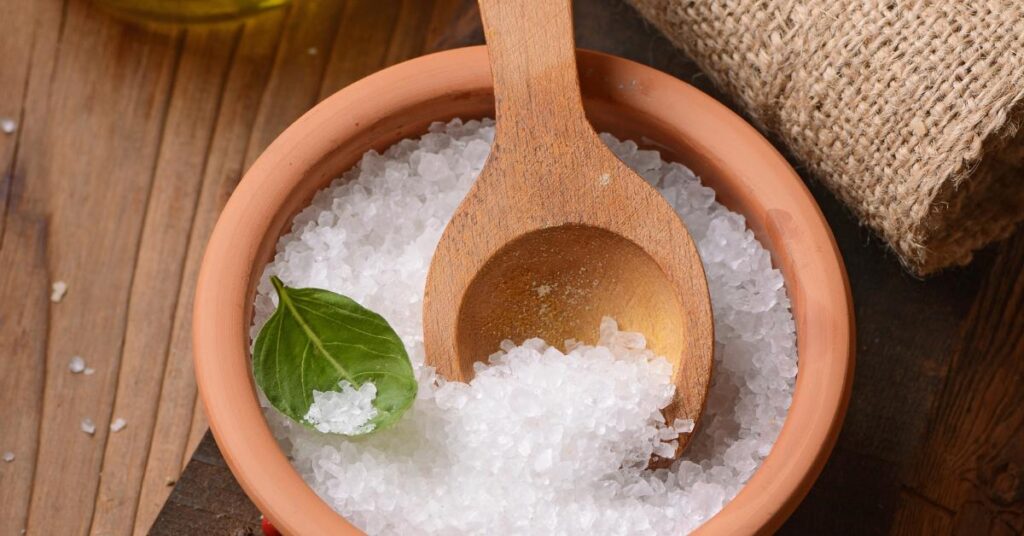
Is it safe to use?
Iodized salt is safe to use as a food additive. It will be well tolerated even if you take iodine above the recommended level. [8] However, you should avoid excessive iodine intake daily, as it can cause thyroid dysfunction.
However, some people may be allergic to iodine and experience hives, swelling, and difficulty breathing symptoms. In addition, though iodine allergy is rare, you may be allergic to iodine-containing foods such as seafood, fish, etc.
FAQs
What is iodized salt?
Iodized salt is table salt that has been fortified with iodine, an essential mineral necessary for proper thyroid function and overall health. The iodine is added during the salt manufacturing process to ensure a consistent and sufficient iodine content.
What are the benefits of iodized salt?
Iodized salt helps prevent iodine deficiency, which can lead to thyroid disorders, impaired cognitive development in children, and goiter. Adequate iodine intake supports thyroid hormone production, metabolism regulation, and normal growth and development. Iodized salt provides an easy and cost-effective way to maintain sufficient iodine levels.
How much iodized salt should I consume?
The recommended daily intake of iodine for adults is around 150 micrograms (mcg). The exact amount of iodized salt needed may vary based on individual factors and dietary sources of iodine. It’s important to balance iodine intake, as excessive consumption can have adverse effects. Consulting with a healthcare professional or registered dietitian can help determine the appropriate amount for your specific needs.
Conclusion
Most people get enough dietary iodine from food alone if they have a balanced diet that includes additional sources of iodine, like seafood or dairy products. In contrast, iodized salt is easy to ensure you obtain enough iodine status in your diet if you need to eat more iodine-rich foods.
Iodized salt is inexpensive and easy to find and can help improve your thyroid function. However, if you have any concerns about using salt in your diet, talk to your doctor first.
References
1. Kapil, U. (2007, December). Health consequences of iodine deficiency. Sultan Qaboos University medical journal. Retrieved October 15, 2022, from https://www.ncbi.nlm.nih.gov/pmc/articles/PMC3074887/
2. Hwalla, N., Al Dhaheri, A. S., Radwan, H., Alfawaz, H. A., Fouda, M. A., Al-Daghri, N. M., Zaghloul, S., & Blumberg, J. B. (2017, March 3). The prevalence of micronutrient deficiencies and inadequacies in the middle east and approaches to interventions. Nutrients. Retrieved October 15, 2022, from https://www.ncbi.nlm.nih.gov/pmc/articles/PMC5372892/
3. E; K.-K. M. B. K. K. I. S. (n.d.). Iodine deficiency in vegetarians and vegans. Annals of nutrition & metabolism. Retrieved October 15, 2022, from https://pubmed.ncbi.nlm.nih.gov/12748410/
4. Zimmermann, M. B., & Boelaert, K. (2015, April). Iodine deficiency and thyroid disorders. The Lancet. Diabetes & endocrinology. Retrieved October 15, 2022, from https://www.ncbi.nlm.nih.gov/pubmed/25591468
5. Kostoglou-Athanassiou, I., & Ntalles, K. (2010, April). Hypothyroidism – new aspects of an old disease. Hippokratia. Retrieved October 15, 2022, from https://www.ncbi.nlm.nih.gov/pmc/articles/PMC2895281/
6. Kapil, U. (2007, December). Health consequences of iodine deficiency. Sultan Qaboos University medical journal. Retrieved October 15, 2022, from https://www.ncbi.nlm.nih.gov/pmc/articles/PMC3074887/
7. Leung, A. M., Braverman, L. E., & Pearce, E. N. (2012, November 13). History of U.S. iodine fortification and supplementation. Nutrients. Retrieved October 15, 2022, from https://www.ncbi.nlm.nih.gov/pmc/articles/PMC3509517/
8. S; R. (1995). Iodised Salt Is Safe. Indian journal of public health. Retrieved October 15, 2022, from https://pubmed.ncbi.nlm.nih.gov/8690505/
His research and writing have been featured in numerous publications, and he is dedicated to helping people understand the importance of these vital nutrients in maintaining optimal health. If you're looking to improve your well-being through diet and nutrition, Christopher is the expert to turn to.
- Can I Take Maca and Ashwagandha Together: YES! - January 7, 2024
- Can You Take Ashwagandha And Liquid Chlorophyll Together: YES! - January 7, 2024
- Can You Take Shilajit and Ashwagandha Together? - January 7, 2024


